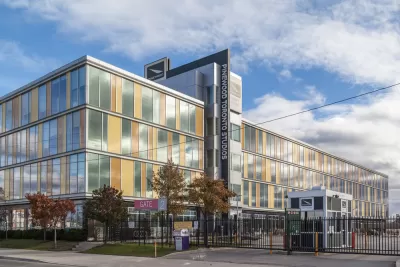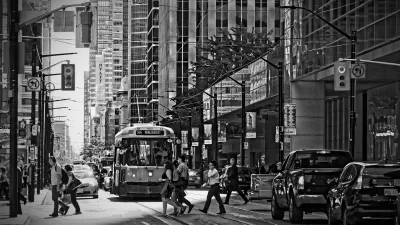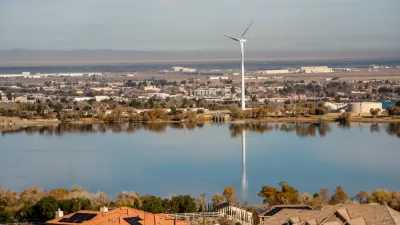Toronto's answer to the question posed in the headline is, "yes." One columnist wonders if the city can do more to balance its priorities.

Toronto Star Contributing Columnist Matt Elliott writes a provocative article questioning Toronto, Ontario's commitment to its waterfront as a burgeoning hot spot for film production.
According to the article, 5,500 employees work in the city's Port land area, mostly in industrial or film-related jobs. Now, "Toronto is embarking on a new phase of waterfront revitalization that will seek to protect these industries while also redeveloping the Port Lands."
Elliott describes the revitalization plan—titled "Audacity" and given a green light by the Toronto City Council and Toronto Mayor John Tory in November—as "fascinating from an urban planning perspective."
This industrial activity is happening even as the area around it rapidly develops with new office buildings, new condos, new retail and new public spaces. And while it frustrates me that trucks often block the bike lane across the Redpath driveway — and some people tell me they can’t stand the raw sugar smell — generally all the uses work well together.
One key urban panning consideration that Elliott is endeavoring to draw attention to is the lack of effort being made to develop housing along with all the ambitions new designs for the Port Lands. One deal in particular has raised eyebrows, according to Elliott: "Tory recently announced the city would lease 8.9 acres of city-owned land in the Port Lands to Hackman Capital Partners to build a new $250 million studio hub in the Port Lands."

Maui's Vacation Rental Debate Turns Ugly
Verbal attacks, misinformation campaigns and fistfights plague a high-stakes debate to convert thousands of vacation rentals into long-term housing.

Planetizen Federal Action Tracker
A weekly monitor of how Trump’s orders and actions are impacting planners and planning in America.

Chicago’s Ghost Rails
Just beneath the surface of the modern city lie the remnants of its expansive early 20th-century streetcar system.

Bend, Oregon Zoning Reforms Prioritize Small-Scale Housing
The city altered its zoning code to allow multi-family housing and eliminated parking mandates citywide.

Amtrak Cutting Jobs, Funding to High-Speed Rail
The agency plans to cut 10 percent of its workforce and has confirmed it will not fund new high-speed rail projects.

LA Denies Basic Services to Unhoused Residents
The city has repeatedly failed to respond to requests for trash pickup at encampment sites, and eliminated a program that provided mobile showers and toilets.
Urban Design for Planners 1: Software Tools
This six-course series explores essential urban design concepts using open source software and equips planners with the tools they need to participate fully in the urban design process.
Planning for Universal Design
Learn the tools for implementing Universal Design in planning regulations.
planning NEXT
Appalachian Highlands Housing Partners
Mpact (founded as Rail~Volution)
City of Camden Redevelopment Agency
City of Astoria
City of Portland
City of Laramie





























